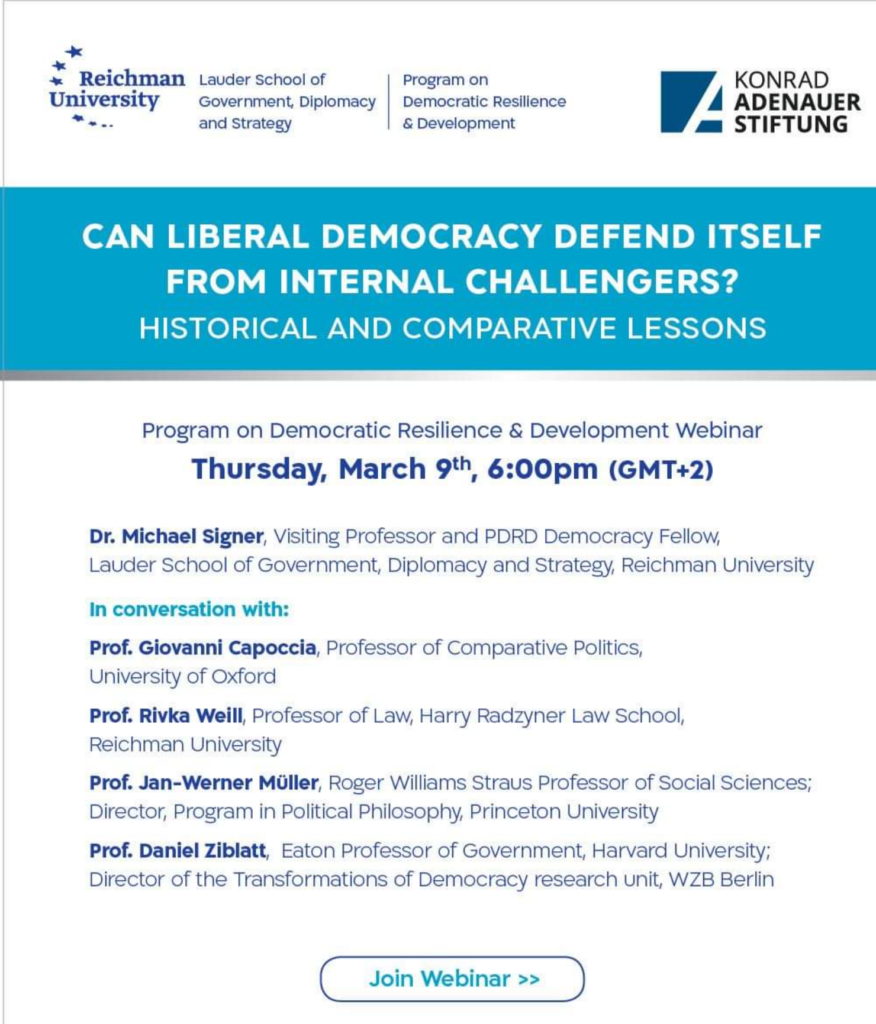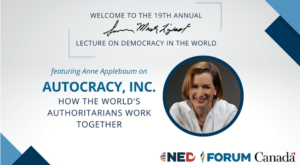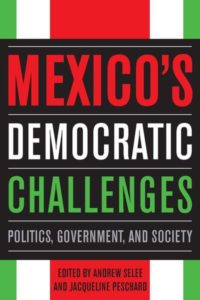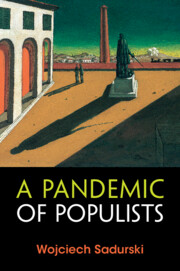
Last month, the Atlantic Council hosted its first Freedom and Prosperity Research Conference, gathering scholars from around the world to present their data-based research on the relationship between prosperity and economic, political, and legal freedoms, ACUS reports. While the scholars presented different opinions on that relationship, they came to a consensus that autocracies are making deliberate attempts to undermine the attractiveness of the democratic model worldwide. They argued that it will take voices from all regions to defend the democratic model.
 “There’s a systemic challenge from autocracies to displace democracies as the leading form of governance,” said Damon Wilson, president and chief executive officer of the National Endowment for Democracy (NED), in remarks to kick off the conference. “We see this sharper repression… [and] the sharing of techniques across borders among autocrats [which are] helping cement kleptocratic rulers in countries around the world that are not serving the poor, that are not serving their people’s interests.”
“There’s a systemic challenge from autocracies to displace democracies as the leading form of governance,” said Damon Wilson, president and chief executive officer of the National Endowment for Democracy (NED), in remarks to kick off the conference. “We see this sharper repression… [and] the sharing of techniques across borders among autocrats [which are] helping cement kleptocratic rulers in countries around the world that are not serving the poor, that are not serving their people’s interests.”
Israel’s security is based partly on a relationship with the United States built on shared values — freedom, equality, democracy — that can only be sustained by a commitment to the rule of law, including an independent judiciary capable of upholding it, Michael Bloomberg writes for The New York Times. If Israel retreats from that long-term commitment and moves its model of governance toward one that mirrors those of authoritarian countries, it risks weakening its ties to the United States and other free nations.
Mexico today exemplifies a recurrent cycle that has made weak institutions the Achilles’ heel of democracy across Latin America, notes analyst Nathan Gardels:
 Impartial institutions that assure peaceful electoral competition for the transfer of power and fair judicial review are the bedrock of legitimate self-governing political systems. Diminishing their independence from the governing authority lays the ground for illiberal regimes that aim to perpetuate their rule in the name of “the people,” whether in Mexico or elsewhere.
Impartial institutions that assure peaceful electoral competition for the transfer of power and fair judicial review are the bedrock of legitimate self-governing political systems. Diminishing their independence from the governing authority lays the ground for illiberal regimes that aim to perpetuate their rule in the name of “the people,” whether in Mexico or elsewhere.
In the end, the battle cannot just be waged on procedural, but also on substantive, grounds, he writes for Noema magazine. A serious defense of the institutions of liberal democracy entails not only resisting attempts to subvert their integrity, but also demonstrating they can deliver for the constituencies of populism that would undermine them.
In the latest episode of Humanity in Action’s How To Fix Democracy series, leading analyst and former NED board member Moises Naim discusses authoritarianism, technology, and the malign three P’s of populism, polarization and post-truth with host @ajkeen. Listen here.
In the run-up to Poland’s anticipated parliamentary elections for the Sejm and Senate this fall, Wojciech Sadurski will offer his assessment whether the governing Law and Justice (PiS) party can hold on to power. Critical factors influencing the outcome are the impact of Putin’s war against Ukraine and the steady advances of authoritarian populism, Harvard CES adds.

In his latest book “A Pandemic of Populists” (Cambridge University Press, 2022), Sadurski argued that Poland serves as a microcosm of the world-wide decline of liberal democracy in the direction of authoritarian populism. Over the past few years, Poland’s constitutional breakdown, described in his earlier book “Poland’s Constitutional Breakdown“‘ (Oxford University Press, 2019), has progressed even further, with the erosion of the rule of law, separation of powers, and resistance of the ruling elite to the European legal standards. Sadurski will examine this decline and how the war in Ukraine has created a rift between Poland and Hungary, weakened pan-European cooperation among various extreme right-wing parties, and created a disadvantage to the democratic opposition.
What historical and comparative lessons can we draw about the capacity of liberal societies to defend themselves in the face of illiberal internal challengers? What ideas and mechanisms should we draw upon in defending our democracy? Join world renowned experts in discussion next week (see details and link in the flyer above). HT: Amichai Magen.







